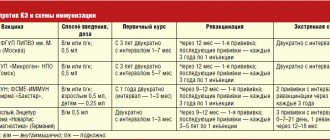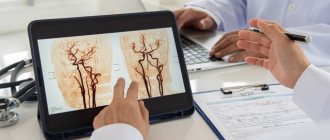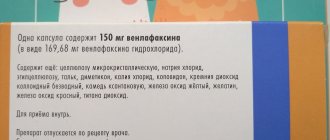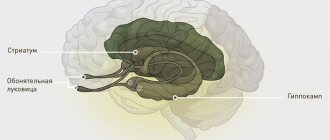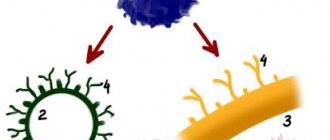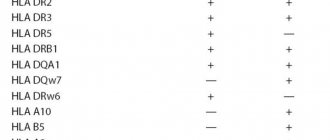What does the analysis determine, what antibodies to COVID19 are tested for?
A blood test for antibodies reveals 2 types of immunoglobulins - proteins that the body produces in response to infection:
- IgM antibodies are the first to appear in the blood of an infected person, from the moment of infection, as a reaction to the virus, and help fight the infection. Their identification means that the person is currently infected. In the first days, the concentration is low, so it may not be detected in a blood test. By the fifth day, the content increases, determined during testing.
- IgG antibodies are produced later, after the tenth day of the disease. The maximum concentration is determined by the fourteenth day, then decreases. These are memory immunoglobulins; with their help, the body remembers the encounter with the virus. The presence of G antibodies means that a person has already encountered a coronavirus infection and has developed immunity.
What are antibodies
Antibodies (or immunoglobulins) are proteins that help the body fight bacteria, fungi and viruses.
There are antibodies for almost every pathogen that the body has encountered. Immunoglobulins recognize surface proteins of the microbe and bind to it. Next, the antibodies either neutralize the “stranger” or attract other elements of the immune system to it. For example, the complement system (a complex of proteins that protects against foreign agents) or phagocytes - immune cells that devour microbes. As a rule, antibodies are formed already in the first week of coronavirus infection. When the virus enters the blood again, they immediately notice it and neutralize it. But antibodies are not the only and not the main component of antiviral protection.
Humoral and cellular immunity
There are two types of immunity – humoral and cellular. Humoral immunity is represented by antibodies and the complement system (a complex of proteins that destroy pathogens), which are found in the blood plasma.
Cellular immunity is represented by T lymphocytes, natural killer cells and macrophages¹. These are immune system cells that recognize and destroy infected human cells.
Antibodies are produced by B lymphocytes after activation by T helper cells. That is, in order to produce enough antibodies, both B cells and T cells must work. T-helpers activate not only B-lymphocytes to produce antibodies, but also T-killers - cells of a specific cytotoxic level. They, like T-helpers, recognize cells infected with this particular virus and kill them. Thus, the humoral and cellular parts of immunity are closely related. Without helpers there will be neither antibodies nor a specific cellular cytotoxic response.
Humoral immunity (particularly antibodies) works more against extracellular pathogens (eg, bacteria, fungi). In relation to a viral infection, cellular immunity is much more important, since the virus is an intracellular parasite. Here it is important to destroy infected cells (for example, cells of the mucous membranes of the respiratory tract, where the virus penetrates). Due to their large size, antibodies circulating in the blood are physically unable to penetrate the mucous membranes (except for immunoglobulin A). Therefore, neutralization of the virus at this stage is the prerogative of cellular immunity.
As a rule, cellular immunity mechanisms work much longer than humoral ones. For the new coronavirus, we may be talking about years or even decades (no data on this yet). The antibodies themselves may disappear after a few months, but memory cells will remain, both T-lymphocytes and B-lymphocytes, which, when confronted with the virus, will provide both a humoral and cellular response.
Why are antibodies determined?
It is important to know how to interpret the results of an antibody test for the new coronavirus so that they are informative for you.
The presence of certain antibodies indicates that you have been vaccinated or have been exposed to the virus (recently or several months ago), and it does not matter whether you were ill or it was an asymptomatic carriage, which is difficult to confirm otherwise. One of the reasons why antibodies are determined is the cheapness and availability of the method. Antibodies, like a light bulb on a refrigerator, show whether the mechanism is working, whether the immune system has been activated. The division of humoral and cellular immunity is quite arbitrary, because these two links are connected. Testing for cellular immunity is an expensive procedure that is not widely available, and the presence of antibodies indicates that a cellular response is most likely present. But in their absence, the positivity of cellular immunity is questionable.
Figure 1. Herd immunity. Image: Photo: NIAID/Flickr
What does antibody testing do?
There are two types of blood tests for COVID-19:
- Qualitative. Express testing only detects the presence of antibodies in the blood.
- Quantitative. Laboratory diagnostics ELISA (enzyme-linked immunosorbent assay) also determines the content (titer) of antibodies in the blood plasma.
Quantitative analysis is more informative; based on the concentration and ratio of immunoglobulins, it allows one to determine the stage of the disease - whether it is just developing or declining.
Additionally, it is recommended to undergo PCR testing to determine the virus itself. The study detects Covid-19 DNA in human biological material (oropharyngeal swabs) from the first day of infection.
Ig G - interpretation of the test for antibodies to coronavirus
To determine class G immunoglobulins in the blood, a qualitative and quantitative method for determining antibodies is used. Below is a table with a breakdown of the enzyme immunoassay for coronavirus (igG indicator for coronavirus).
Coronavirus antibody index - transcript of captions
| Result | Index | Meaning |
| Negative | Less than 0.8 | The patient either did not encounter the disease or underwent the procedure in the acute phase. |
| Border | 0,8-1,1 | You need to do a repeat test after 14 days. Perhaps the test was done at the onset of the disease or during the recovery process. |
| Positive | More than 1.1 | This level of antibodies to coronavirus in adults is normal. The person had coronavirus infection several months ago, and humoral immunity had time to develop. |
Class G antibodies to coronavirus - interpretation of results
An antibody titer to coronavirus of 1,800 (positive result) is normal. In this case, immunoglobulins of class A and M should be absent in the blood. Their presence indicates the stage of recovery.
What does the analysis show, what does decoding the results mean?
- For IgM antibodies. A positive answer means the person is infected in the acute stage. Negative - absence of Covid-19 or late stage when antibodies are no longer produced. Confirmed by PCR test.
- For IgG antibodies. A positive answer is an infection in a late stage or an already suffered disease with the development of immunity. Negative - there was no infection or the disease was in an early stage. Confirmed by PCR test.
Only a doctor knows how to correctly decipher test results. You cannot draw conclusions on your own. Only a specialist can compare the received data and figures, on the basis of which a conclusion can be made about what result is normal. In case of doubtful tests for the presence or absence of antibodies, repeated testing is prescribed; additional PCR research is required.
Decoding the results of the test for antibodies to coronavirus
How to decipher a qualitative coronavirus antibody test
| Yes/No | Ig G (Eat) | Ig G (No) |
| Ig M (Yes) | 1 option | Option 2 |
| 5-10 weeks have passed since infection. IgM is still present in the blood, but IgG is already being formed | Acute phase of the disease. 1-3 weeks have passed since infection | |
| Ig M (No) | Option 3 | Option 4 |
| Several months have passed since the illness. You may have had the disease asymptomatically | You have not encountered any viruses or no more than 7 days have passed since infection |
Antibodies to coronavirus - table with interpretation of results
In the 2nd and 4th options (if there are suspicious symptoms), it is recommended to take a PCR test for coronavirus to identify the pest.
The complete absence of immunoglobulins may also mean that:
1) The preparation conditions were not met and the result was distorted
2) The symptoms of influenza or ARVI were similar to the symptoms of coronavirus,
3) The patient suffered a mild form of the disease and did not develop antibodies.
4) The patient suffered a severe form of the disease, and the antibodies quickly disappeared.
Indications for the purpose of the study
PCR diagnostics:
- if you suspect covid 19;
- returning from a trip abroad 14 days before the onset of symptoms;
- presence of close contacts over the past 2 weeks with persons who were under observation and subsequently became ill.
Antibody test:
- as an auxiliary analysis for the detection of SARS-CoV-2;
- to determine if there was coronavirus.
Individual consultation
Immunity to polio
A person who has had polio remains immune. However, it will only fight one strain of the virus. If you come into contact with another strain, you can get sick again.
Lasting immunity to this insidious disease is developed by using vaccines made from three types of virus. At the same time, stronger immunity appears when vaccinated with a live vaccine. However, the live vaccine is not suitable for everyone. It is strictly not recommended to vaccinate children under the age of one and a half years with it. In Russia, there are cases where infants, after an incorrect vaccination, began to develop symptoms of epilepsy and other complications.
Experts have not yet reached a consensus on whether to vaccinate all children according to the same schedule or to vaccinate selectively. This means: first take a blood test for antibodies to polio and only if they are absent (or insufficient) vaccinate. It turned out that some people can develop immunity to diseases naturally, without vaccinations. In this case, the person himself does not get sick. It turns out that the main thing in disease prevention is strengthening the immune system in any way. Discussions concern only the role of vaccines for each specific organism and individual reactions.
What does an antibody test mean? How to find out whether you have had Covid 19 or not
When the virus enters the body, cells of the immune system secrete immunoglobulins. These are blood plasma proteins that prevent the proliferation of the pathogen and neutralize the toxic substances released by the virus. Antibodies are divided into classes and appear at different stages of the disease. By their presence and concentration, you can understand whether you have had a new coronavirus infection or not.
| Result | IgM | IgG |
| Negative <0.8 | No disease, possible incubation period. In combination with a positive IgG test, it indicates a previous infection, and rarely, an atypical course of the disease. | The person is not infected, but if other tests are positive, the incubation period or early stage of infection is suspected. |
| Doubtful >= 0.8–1.1 | Determined at the initial stage of coronavirus. It is recommended to repeat the procedure in 1-2 weeks. | Borderline values can be detected at the onset of the disease. A repeat study is required after 7-14 days. |
| Positive >1.1 | The presence of COVID-19 in the early or active phase. At low concentrations – the final stage of infection. | Recovery phase, previous infection. The strength of immunity is determined by the number of IgG antibodies. |
How does the analysis work?
Testing at the clinic is carried out by appointment. Before the procedure, your temperature will be taken and you will be given a mask and gloves. After presenting your passport, the laboratory technician will take blood from a vein or a swab from the mucous membrane of the oropharynx.
All 3 paid tests for coronavirus can be taken at home. Our specialists will come to you wearing disposable personal protective equipment. They will give you a mask, after which they will collect biomaterial for research.
How many days to wait for results
- PCR test – within 3 days;
- Antibody test – 2 days.
Results can be obtained by email or in the patient’s personal account.
Decoding indicators
| Disease stage/duration (in days) | RNA analysis | IgM | IgG |
| healthy | — | — | — |
| Incubation period (up to 14) | + | — | — |
| Initial phase (5-10) | + | +/- | — |
| Active stage (5-10) | + | + | +/- |
| Recovery/carrier status (8-14) | + | — | + |
| Infection/decline of infection (14-24) | +/- | + | + |
| Recovery (18-24) | — | +/- | + |
| Previous infection (more than 24) | — | — | + |
Note! The PCR test shows the presence or absence of the disease. Even with a negative result, repeat testing is often required.
Knowing the IgM level is necessary to determine the stage of infection. If IgG immunoglobulins are detected, the person is recovering or has already recovered. Their exact number is calculated to assess the strength of the immune system.
Obtaining a certificate confirming the presence or absence of coronavirus
In our clinic you can obtain a certificate of absence of COVID-19. Its registration is carried out after conducting a study for the presence of coronavirus RNA and a rapid antibody test. The document is issued after receiving a negative result from two tests.
This certificate is needed:
- for moving around Russia;
- for checking into sanatoriums and other recreational facilities;
- for trips abroad.
The validity period of a certificate of absence of coronavirus infection at the place of request is 4 days.
To find out more details and cost of coronavirus tests, call us right now. Our consultants will answer questions and sign up for testing. You don't have to worry about the quality of diagnostics. We cooperate with the leading medical laboratory in Russia - Hemotest.
Where can I get tested for Coronavirus in Perovo and on Vernadsky Avenue?
Tests are taken in Gemotest laboratories. Below are contact details for each branch.
Address: 111398, Moscow, Perovskaya street 22, building 1, Perovo metro station
Opening hours: 10.00 – 21.00 (7 days a week)
Phone number of the Hemotest laboratory in Perovo: 8-964-703-90-89
From Perovo metro station: Exit the last car from the center after the glass doors to the right, then exit to the city to the left. Stop (landmark Subway) 77 trolleybus to the stop “st. Plekhanov" or any minibus (landmark store Pyaterochka). Standing with your back to the Pyaterochka store, you need to cross all the roads in a straight line and you will see the Gemotest sign.
Driving directions to the clinic on the map:
Address: Moscow, Udaltsova 71, bldg. 3, Prospekt Vernadskogo metro station
Opening hours: 10.00 – 21.00 (7 days a week)
Phone number of the Gemotest laboratory on Vernadsky Avenue: 8-800-550-13-13
Information about the legal entity: Build-service LLC Actual address: st. Perovskaya, 22/1
License: No. LO-77-01-005369 License start date: 10/22/2012 Licensing authority, telephone: Moscow Department of Health
MAKE AN APPOINTMENT
Photos of the laboratory where paid tests are performed:
Feedback from patients who were tested for Covid 19:
Video review - how the procedure happens:
We bring to your attention a video about getting tested for coronavirus:
Author of the article : Vaganov Nikolay Vladimirovich – specialization: plastic surgery, laser surgery, cardiovascular surgery, cosmetology, dermatovenerology and oncology. Work experience more than 8 years. He has 9 published works, including 5 on the topic of his dissertation. Proficient in all modern methods of aesthetic and plastic surgery. Successfully combines the traditional surgical approach with the latest advances in hardware and laser cosmetology, which allows you to achieve better results. You can view official certificates and supporting documents here.
Make an appointment Get a consultation
Author's contacts on social networks:
